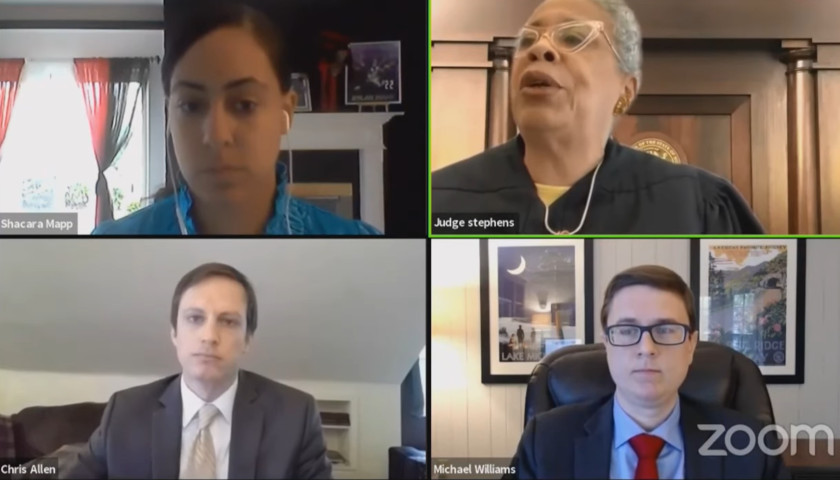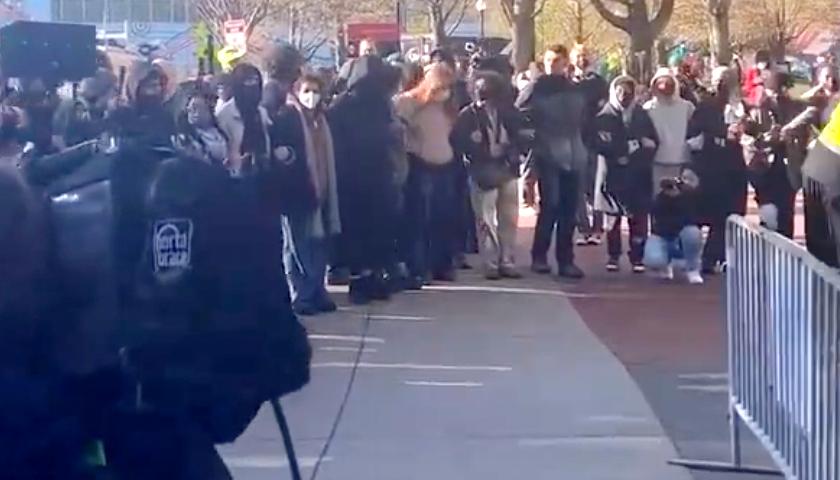by Scott McClallen
A Michigan Court of Claims Judge on Friday heard the first oral argument in which the GOP-led legislature challenged Gov. Gretchen Whitmer’s authority to extend her emergency orders unilaterally.
The legislature filed its lawsuit on May 6.
The case’s ruling will impact the entire state. Republicans want to open up Michigan’s economy faster than Whitmer, citing bleak unemployment numbers and a looming $3.2 budget deficit.
Whitmer says that opening the economy too fast would backfire in the long run.
Judge Cynthia Stephens, appointed to the bench by former Democratic Gov. Jennifer Granholm, heard the case via Zoom.
Michael Williams, who represented the House of Representatives, argued with Whitmer’s attorney, Chris Allen, whether Whitmer has exceeded her statutory authority.
Allen argued the legislature had purposely granted Whitmer the power to act.
Williams argued the executive “seized” power from legislative tools to manage the COVID-19 pandemic.
Williams said the case hinged on whether a governor, now or in the future, can “exercise effectively a limitless, unilateral, temporally unbounded authority, exercising the lawmaking power of this state for as long as the governor wishes.”
Williams argued both laws granted Whitmer limited powers, for which she took power but ignored limits.
Allen countered that Whitmer was adhering to laws granted to her by the legislature to protect Michiganders.
Two laws guide the governor’s emergency power; the Emergency Management Act of 1976 allows the legislature to review the executive’s action after 28 days and the Emergency Powers of Governor Act of 1945, which has no such limit.
Allen argued there’s no dispute that an emergency exists, for which the governor can harness her emergency powers – even after 28 days.
Just because the legislature voted not to extend her emergency power “that doesn’t remove the governor’s duty to declare [an emergency] if the conditions warrant it,” Allen said.
Judge Stephens pressed Allen on who could challenge the governor if she extended the emergency for an entire term by issuing and rescinding executive orders.
The legislature’s lawsuit revolves around the locality in which a governor can declare a state of emergency, arguing it’s limited to smaller areas than the entire state.
But the 1945 law allows the governor to proclaim whether an emergency exists and to “designate” the impacted area.
Stephens questioned Williams how he knows “area” means a local area instead of the entire state.
Williams cited past context used for local emergencies such as the 1967 riots in Detroit.
Allen argued that an area’s definition depended on the circumstances, and in COVID-19’s case, encompassed the entire state.
Stephens requested the court transcript be ready by Tuesday, and concluded by suggesting that the Michigan Supreme Court will probably hear the case.
– – –
Scott McClallen is a staff writer covering Michigan and Minnesota for The Center Square. A graduate of Hillsdale College, his work has appeared on Forbes.com and FEE.org. Previously, he worked as a financial analyst at Pepsi.
Photo “Zoom Meeting” by CivicCenter TV.





